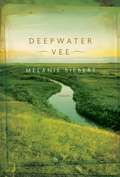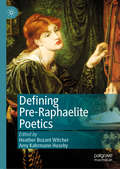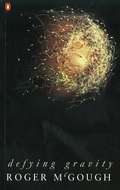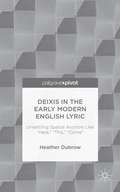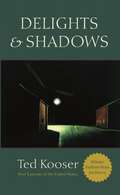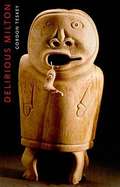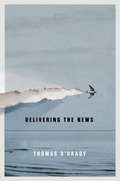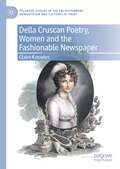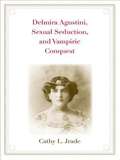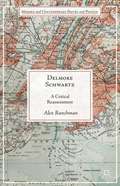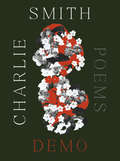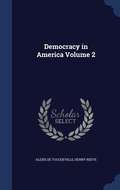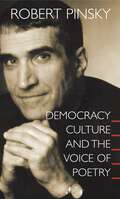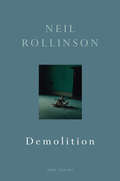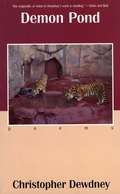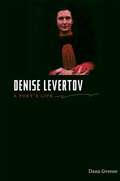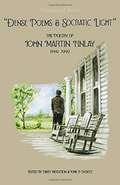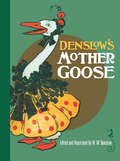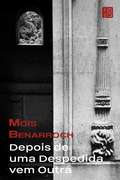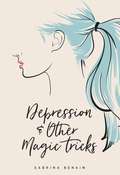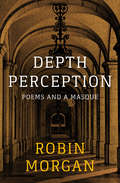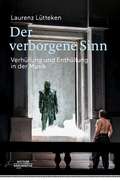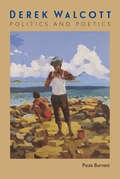- Table View
- List View
Deepwater Vee
by Melanie SiebertMelanie Siebert's stunning debut collection travels remote northern rivers, as well as two of Canada's most threatened rivers, the Athabasca and the North Saskatchewan. These rivers push the poems into a contemplation of loss and into the terrain of Alexander Mackenzie's dreams, a busker's broken-down street riffs, and the borderland wanderings of a grandmother whose absence is felt as a presence. The poems' currents are turbulent, braided, submerged. Narrative streams appear like tributaries glimpsed through brush, and then veer into unexpected territories, where boundaries blur - between the self and the other, between the living and the dead, between the human and the wild - and loss carries with it both music and silence. In this virtuoso collection, Melanie Siebert has transformed language into that rarest thing, a singular poetic vision.From the Trade Paperback edition.
Defining Pre-Raphaelite Poetics
by Heather Bozant Witcher Amy Kahrmann HusebyDefining Pre-Raphaelite Poetics offers a range of Pre-Raphaelite literary scholarship, provoking innovative discussions into the poetic form, gender dynamics, political engagement, and networked communities of Pre-Raphaelitism. The authors in this collection position Pre-Raphaelite poetics broadly in the sense of poiesis, or acts of making, aiming to identify and explore the Pre-Raphaelites’ diverse forms of making: social, aesthetic, gendered, and sacred. Each chapter examines how Pre-Raphaelitism takes up and explores modes of making and re-making identity, relationality, moral transformations, and even, time and space. Essays explore themes of formalist or prosodic approaches, expanded networks of literary and artistic influence within Pre-Raphaelitism, and critical legacies and responses to Pre-Raphaelite poetry and arts, codifying the methods, forms, and commonalties that constitute literary Pre-Raphaelitism.
Defying Gravity
by Roger McGoughIn this evocative and personal collection of poems Roger McGough comes to terms with painful memories as well as confronting fears that are universal. Here he remembers his father in ‘Squaring Up’ and ‘Alphabet Soup’; observes the eccentricities of contemporary life in ‘The City of London Tour’; gives insights into human feeling with the surreal ‘Your Favourite Hat’ and the moving elegy ‘Defying Gravity’; and muses on writing itself with ‘Word Trap’ and ‘The Darling Buds of Maybe’. There are even witty poems dedicated to the chemical elements. Blending the everyday and the magical, his verses sparkle with verbal dexterity, irreverent humour, irony and heartfelt compassion.
Deixis in the Early Modern English Lyric: Unsettling Spatial Anchors Like Here, This, Come
by Heather DubrowThis book engages with deictics ('pointing' words like here/there, this/that) of space. It focuses on texts by Donne, Shakespeare, Spenser, and Wroth in particular, relating their forms of deixis to cultural and generic developments; but it also suggests parallels with both iconic and neglected texts from a range of later historical periods.
Deliberate Prose: Selected Essays 1952-95
by Bill Morgan Allen GinsbergThought of Ginsberg on a wide range of topics, predominantly on literature and culture.
Delights and Shadows: Poems
by Ted KooserTed Kooser is a master of metaphor, a poet who deftly connects disparate elements of the world and communicates with absolute precision. Critics call him a “haiku-like imagist” and his poems have been compared to Chekov’s short stories. In Delights and Shadows, Kooser draws inspiration from the overlooked details of daily life. Quotidian objects like a pegboard, creamed corn and a forgotten salesman’s trophy help reveal the remarkable in what before was a merely ordinary world.<P><P> Ted Kooser is the author of eight collections of poems and a prose memoir. He lives on a small farm in rural Nebraska.<P> Pulitzer Prize Winner
Delilah's Daughters: A Novel
by Angela BensonAn inspirational story about the allure of fame and the faith that binds a family forever . . .Delilah Monroe has done everything in her power to keep her three daughters strong since the death of her husband. And a big part of that connection is their singing group, Delilah's Daughters. Veronica, Roxanne, and Alisha each have their own unique sense of self, but they all share the dream of Delilah's Daughters hitting the Billboard charts.Now, just as they enter the final round of a national talent show, a record producer approaches Veronica with the promise of fame . . . if she goes solo. Then the man Delilah has always leaned on wants more from her than just friendship, and someone from her past comes calling with a shocking secret. Will Delilah be able to hold her family together?
Delirious Milton: The Fate of the Poet in Modernity
by Gordon TeskeyComposed after the collapse of his political hopes, Milton's great poems Paradise Lost, Paradise Regained, and Samson Agonistes are an effort to understand what it means to be a poet on the threshold of a post-theological world. The argument of Delirious Milton, inspired in part by the architectural theorist Rem Koolhaas's Delirious New York, is that Milton's creative power is drawn from a rift at the center of his consciousness over the question of creation itself. This rift forces the poet to oscillate deliriously between two incompatible perspectives, at once affirming and denying the presence of spirit in what he creates. From one perspective the act of creation is centered in God and the purpose of art is to imitate and praise the Creator. From the other perspective the act of creation is centered in the human, in the built environment of the modern world. The oscillation itself, continually affirming and negating the presence of spirit, of a force beyond the human, is what Gordon Teskey means by delirium. He concludes that the modern artist, far from being characterized by what Benjamin (after Baudelaire) called "loss of the aura," is invested, as never before, with a shamanistic spiritual power that is mediated through art.
Delivering the News (Hugh MacLennan Poetry Series #47)
by Thomas O'GradyWar, Pestilence, Famine, Death. Was I deaf / to the headline roar of my unwieldy load? Engaging with the inevitability of change and flux, Thomas O'Grady's poems grapple with themes of death and rebirth, of loss and resiliency, of ebb and flow within nature and within individual lives and romantic and domestic relationships. Bookended by the springtime of “Controlled Burn” and its mirror, the wistfully autumnal “Magritte,” the collection follows multiple arcs within and across poems and longer sequences. Part I, "Seeing Red," grounds the poems in the rural landscapes, shorescapes, and streetscapes of the poet's childhood on Prince Edward Island, leading O'Grady home as he returns to “the heartening blaze / of red that frames the doors, // the eaves, the corner trim / of every outlying / Island barn and shed.” Part II, “The Wide World,” comprises poems prompted by more cosmopolitan landscapes, both literal and figurative, and inspired by the graphic arts, jazz music, classical mythology, and other writers. A later sequence of eight poems reflects O'Grady's Irish heritage within the social fabric of PEI. Through precise and steadying language, Delivering the News reflects the capacity of poetry both to acknowledge and to mitigate life's mutability.
Della Cruscan Poetry, Women and the Fashionable Newspaper (Palgrave Studies in the Enlightenment, Romanticism and Cultures of Print)
by Claire KnowlesThis book explores Della Cruscan poetry in the late eighteenth-century literary scene. A sociable, ornate, and deeply theatrical type of poetry, Della Cruscanism was associated with writers like Robert Merry, Mary Robinson, and Hannah Cowley. While Merry is the poet most commonly associated with the Della Cruscan school, this book argues that Della Cruscanism was a movement dominated by female poets and that this was one of the key reasons for the later disavowal and downgrading of its poetic accomplishments. It offers a close examination of these women writers and their role in shaping the poetic culture of the fashionable newspaper. In doing so, this study offers the first account of the feminization of the fashionable newspaper and of popular literary culture in the final years of the eighteenth century.
Delmira Agustini, Sexual Seduction, and Vampiric Conquest
by Cathy L. JradeDelmira Agustini (1886–1914) has been acclaimed as one of the foremost modernistas and the first major woman poet of twentieth-century Spanish America. Critics and the reading public alike were immediately taken by the originality and power of her verse, especially her daring eroticism, her inventive appropriation of vampirism, and her morbid embrace of death and pain No work until now, however, has shown how her poetry reflects a search for an alternative, feminized discourse, a discourse that engages in an imaginative dialogue with Rubén Darío’s recourse to literary paternity and undertakes an audacious rewriting of social, sexual, and poetic conventions. In the first major exploration of Agustini’s life and work, Cathy L. Jrade examines her energizing appropriation and reinvention of modernista verse and the dynamics of her breakthrough poetics, a poetics that became a model for later women writers.
Delmore Schwartz
by Alex RunchmanTaking as its starting point Delmore Schwartz's self-appointment as both a 'poet of the Hudson River' and 'laureate of the Atlantic, ' this book comprehensively reassesses the poetic achievement of a critically neglected writer. Runchman reads Schwartz's poetry from In Dreams Begin Responsibilities to the posthumously-published Last & Lost Poems in relation to its national and international perspectives, recognizing tensions between the two but arguing that these more often animate his writing than hold it back. Addressing Schwartz's Jewish-American heritage, his attempts to negotiate the influence of T. S. Eliot, his use of allusion, his writing about the city, his responses to World War II, and his later poetry's euphonic symbolism, Delmore Schwartz: A Critical Reassessment reestablishes Schwartz's importance to his peers and successors. "
Demo: Poems
by Charlie SmithA dazzling volume that gushes with the rhythms of life and language, from award-winning poet Charlie Smith. Moving through shades of darkness and light, Charlie Smith captures a refracted view of a disturbed, disintegrating world. Demo explores landscapes both natural and urban, probing the places where the two overlap. Its narrator is at once wanderer and witness, living among streets where flowers are covered with dust and smells of Mexican food and Chinese cooking fill the air. The poet finds a resurgence of life in the ruins, reminding us once again “that we don’t really know what beauty is until we’ve looked hard at the horror that throws beauty into bright relief” (David Kirby, New York Times).
Democracy in America -- Volume 2
by Alexis De TocquevilleThis anthology is a thorough introduction to classic literature for those who have not yet experienced these literary masterworks. For those who have known and loved these works in the past, this is an invitation to reunite with old friends in a fresh new format. From Shakespeare's finesse to Oscar Wilde's wit, this unique collection brings together works as diverse and influential as The Pilgrim's Progress and Othello. As an anthology that invites readers to immerse themselves in the masterpieces of the literary giants, it is must-have addition to any library.
Democracy, Culture and the Voice of Poetry (The University Center for Human Values Series #27)
by Robert PinskyThe place of poetry in modern democracy is no place, according to conventional wisdom. The poet, we hear, is a casualty of mass entertainment and prosaic public culture, banished to the artistic sidelines to compose variations on insipid themes for a dwindling audience. Robert Pinsky, however, argues that this gloomy diagnosis is as wrongheaded as it is familiar. Pinsky, whose remarkable career as a poet itself undermines the view, writes that to portray poetry and democracy as enemies is to radically misconstrue both. The voice of poetry, he shows, resonates with profound themes at the very heart of democratic culture. There is no one in America better to write on this topic. One of the country's most accomplished poets, Robert Pinsky served an unprecedented two terms as America's Poet Laureate (1997-2000) and led the immensely popular multimedia Favorite Poem Project, which invited Americans to submit and read aloud their favorite poems. Pinsky draws on his experiences and on characteristically sharp and elegant observations of individual poems to argue that expecting poetry to compete with show business is to mistake its greatest democratic strength--its intimate, human scale--as a weakness. As an expression of individual voice, a poem implicitly allies itself with ideas about individual dignity that are democracy's bedrock, far more than is mass participation. Yet poems also summon up communal life.. Even the most inward-looking work imagines a reader. And in their rhythms and cadences poems carry in their very bones the illusion and dynamic of call and response. Poetry, Pinsky writes, cannot help but mediate between the inner consciousness of the individual reader and the outer world of other people. As part of the entertainment industry, he concludes, poetry will always be small and overlooked. As an art--and one that is inescapably democratic--it is massive and fundamental.
Demolition
by Neil RollinsonWith the frank, subversive, and very funny poems in his first two books, Neil Rollinson established himself as a deft cartographer of the sensual world. While a rich and tactile eroticism still courses through Demolition, there is a new seriousness here, as mortality starts to throw its long shadow. These poems occupy a more rueful, reflective space - provisional, mercurial and fragile - a darker place where disintegration and loss are the only certainties, and memory is the only solid ground. Central to this is the death of the father - whether the poet's own, or the lost fathers of Borges or Vallejo - and the theme is broadened through a number of moving examinations of the erosion of time and youth. Against this gathering darkness, Rollinson sets a spirited defence, blending the lyric and vernacular voice in a muscular celebration of food, sex, sport and the natural world that is unusually refreshing, and sophisticated enough to allow both humour and profundity.The poems in Demolition never give up hope; they exhibit a tenacious optimism - or at least a steely pragmatism - that says: we have what we are given, there is no alternative, and we all must find what joy we can in life, and in its living.
Demon Pond
by Christopher DewdneyChristopher Dewdney has published more than eleven volumes of poetry. He has been nominated for the Governor General’s Award three times and has won first prize in the CBC Literary Competition for poetry. He is also a media and culture commentator, and appears on TVO’s Studio 2 among other television and radio programs. Dewdney lives in Toronto, where he teaches writing and Cultural Studies at York University.
Denise Levertov: A Poet's Life
by Dana GreeneKenneth Rexroth called Denise Levertov (1923-1997) "the most subtly skillful poet of her generation, the most profound, . . . and the most moving." Author of twenty-four volumes of poetry, four books of essays, and several translations, Levertov became a lauded and honored poet. Born in England, she published her first book of poems at age twenty-three, but it was not until she married and came to the United States in 1948 that she found her poetic voice, helped by the likes of William Carlos Williams, Robert Duncan, and Robert Creeley. Shortly before her death in 1997, the woman who claimed no country as home was nominated to be America's poet laureate. Levertov was the quintessential romantic. She wanted to live vividly, intensely, passionately, and on a grand scale. She wanted the persistence of Cézanne and the depth and generosity of Rilke. Once she acclimated herself to America, the dreamy lyric poetry of her early years gave way to the joy and wonder of ordinary life. By the late 1960s and early 1970s, however, her poems began to engage the issues of her times. Vehement and strident, her poetry of protest was both acclaimed and criticized. The end of both the Vietnam War and her marriage left her mentally fatigued and emotionally fragile, but gradually, over the span of a decade, she emerged with new energy. The crystalline and luminous poetry of her last years stands as final witness to a lifetime of searching for the mystery embedded in life itself. Through all the vagaries of life and art, her response was that of a "primary wonder." In this illuminating biography, Dana Greene examines Levertov's interviews, essays, and self-revelatory poetry to discern the conflict and torment she both endured and created in her attempts to deal with her own psyche, her relationships with family, friends, lovers, colleagues, and the times in which she lived. Denise Levertov: A Poet's Life is the first complete biography of Levertov, a woman who claimed she did not want a biography, insisting that it was her work that she hoped would endure. And yet she confessed that her poetry in its various forms--lyric, political, natural, and religious--derived from her life experience. Although a substantial body of criticism has established Levertov as a major poet of the later twentieth century, this volume represents the first attempt to set her poetry within the framework of her often tumultuous life.
Dense Poems and Socratic Light: The Poems of John Martin Finlay
by David Middleton John Martin Finlay John P DoucetThis Wiseblood Book edition of Finlay’s poetry and related writings is the most comprehensive edition to date, including many previously uncollected and unpublished materials. John Finlay’s poems are almost all in traditional literary forms. Whether plain-style, narrative, or post-symbolist, Finlay’s poems are serious, simple, deep, direct, and often traumatically revealing of the human condition. The best of them are truly unforgettable. <p><p> Finlay addresses such subjects as the origin of the mind, the relation of mind and matter, mind and the irrational, mind and God, the nature of evil, Thomistic theology, philosophical subjectivism, the inscrutability and beauty of the natural world, primitive religious rituals, and, especially in the later poems, family life in the South since the early nineteenth century, Indian life in the South, the nature of modern war, and the isolation of the serious thinker and artist in the contemporary world. <p> Readers who want serious poems that vividly present sensuous experience as understood by a mature mind steeped in classical and Christian tradition, yet fully aware of the problems of the contemporary world and of the perpetual threat of the primitive and the irrational, should find much here to contemplate. In their severe and uncompromising grandeur John Finlay’s best poems are surely permanent additions to American literature.
Denslow's Mother Goose (Dover Children's Classics)
by W. W. DenslowW. W. Denslow is best remembered for his distinctive illustrations for The Wonderful Wizard of Oz. This hardcover keepsake volume presents color reproductions of his interpretations of "Little Jack Horner," "Little Boy Blue," "There Was an Old Woman," and other nursery favorites. A classic of children's illustration, it's also a treasury of beloved rhymes.
Depois de uma Despedida vem Outra
by Mois Benarroch Ezio CardozoMois Benarroch leva-nos a sentir o amor: o amor sefardita, o amor exilado, o amor físico, o amor perdido, o amor poético, o amor amado, o amor platônico, o amor estético, o amor tétrico. Mais uma vez temos a oportunidade de adentrar suas memórias e histórias, numa retórica gotejante de ironia e imaginação, de picardia e realidade. Do início ao fim nos permite apenas fixar nossos olhos em sua poesia e, tal como a criança que cria amigos imaginários e lhes dá nome para preencher o mundo, nos oferece o seu.
Depression and Other Magic Tricks
by Sabrina Benaim<P>Depression & Other Magic Tricks is the debut book by Sabrina Benaim, one of the most-viewed performance poets of all time, whose poem "Explaining My Depression to My Mother" has become a cultural phenomenon with over 50,000,000 views.<P> Depression & Other Magic Tricks explores themes of mental health, love, and family. <P>It is a documentation of struggle and triumph, a celebration of daily life and of living. <P>Benaim's wit, empathy, and gift for language produce a work of endless wonder.
Depth Perception: Poems and a Masque
by Robin MorganThis fourth book of poems from award-winning author Robin Morgan has an almost-novelistic shape, with plot twists that are realizations of self, other, and the nature of change In this book of transitions, Robin Morgan&’s poetry crosses the boundaries of age, race, culture, and gender. The lifelong love-hate passion between mother and daughter is here, as is a vivid, rhetoric-free depiction of the suffering and rage of women cross-culturally. Morgan also traces the slow dissolution of a marriage, parsed in poems of alternating hope and despair, humor and fury—and also in a tragicomic, two-character, one-act verse play, &“The Duel: A Masque.&” The play, which inverts the Orpheus-Eurydice myth, was performed at the Public Theater in New York City. Praised by the literary world for her technique, but dedicated to keeping her craft accessible and impassioned, Morgan takes us through inevitable deaths and resurrections of the self in pitch-perfect language shot through with dazzling imagery and irony.
Der verborgene Sinn: Verhüllung und Enthüllung in der Musik
by Laurenz LüttekenEin Sinn, der verborgen oder enthüllt werden kann, ist eine der zentralen Denkfiguren der Neuzeit. Das betrifft auch die Frage, was Musik eigentlich sei. Je stärker man darüber nachgedacht hat, desto brüchiger, changierender ist die Annahme von einem substantiellen Wesenskern der Musik geworden. In diesem Buch geht es nicht um ästhetische oder theoretische Überlegungen dazu, sondern um die Frage, ob und auf welche Weise komponierte Musik sich selbst zum Gegenstand macht und so möglicherweise etwas von ihrem Kern preisgibt. Die optischen Metaphern von Verhüllung und Enthüllung erweisen sich dabei als ebenso hilfreich wie anschaulich. In einer Reihe von Beispielen, die vom 17. bis in die Gegenwart reichen, wird das Phänomen in seiner ganzen Vielfalt beschrieben. Dabei geht es nicht nur um Opern von Mozart bis Strauss, sondern auch um Monteverdis Vokalmusik, Haydns „Schöpfung“, die Sinfonien Bruckners oder Ligetis Etüden.
Derek Walcott: Politics and Poetics
by Paula Burnett?An important contribution to the study of Walcott?s poetry and plays.??Modernism/modernity ?Walcott, [Burnett] says, has assimilated western tradition to his own project, using it to create a new plural world of open-ended possibilities. . . . A book that should be of interest to any student of Walcott?s literature.??Times Higher Education Supplement ?This ambitious book takes in the full corpus of Walcott?plays, essays, interviews, etc., as well as the poetry?and argues the essential unity of his (humanistic) vision.??Wasafiri ?Burnett is very good on Walcott?s aesthetic and technical strategies, particularly the mythopoeic framework of his thought, and the epic form which he frequently employs.??New West Indian Guide ?Convincingly suggests that Walcott?s art radiates outward from St. Lucia to the West Indies, the Caribbean, Latin America, and the Americas, becoming an art that honors and enlarges the English language and its multiple histories and usages.??World Literature Today
